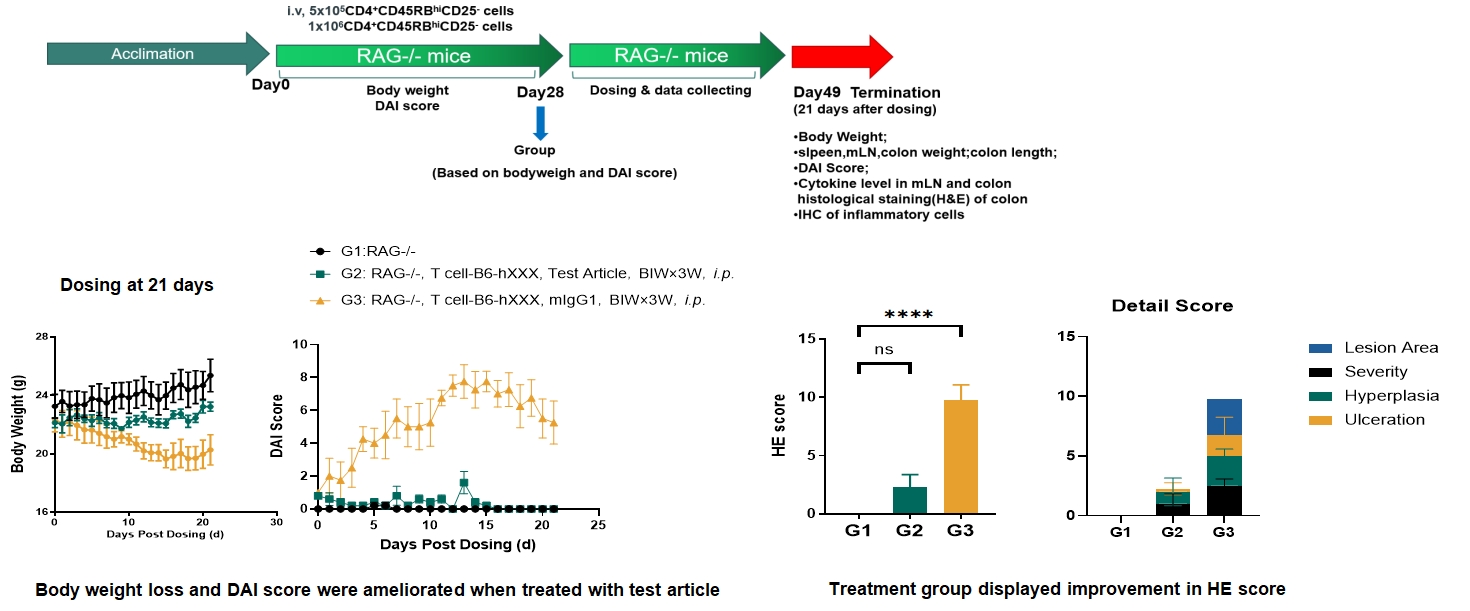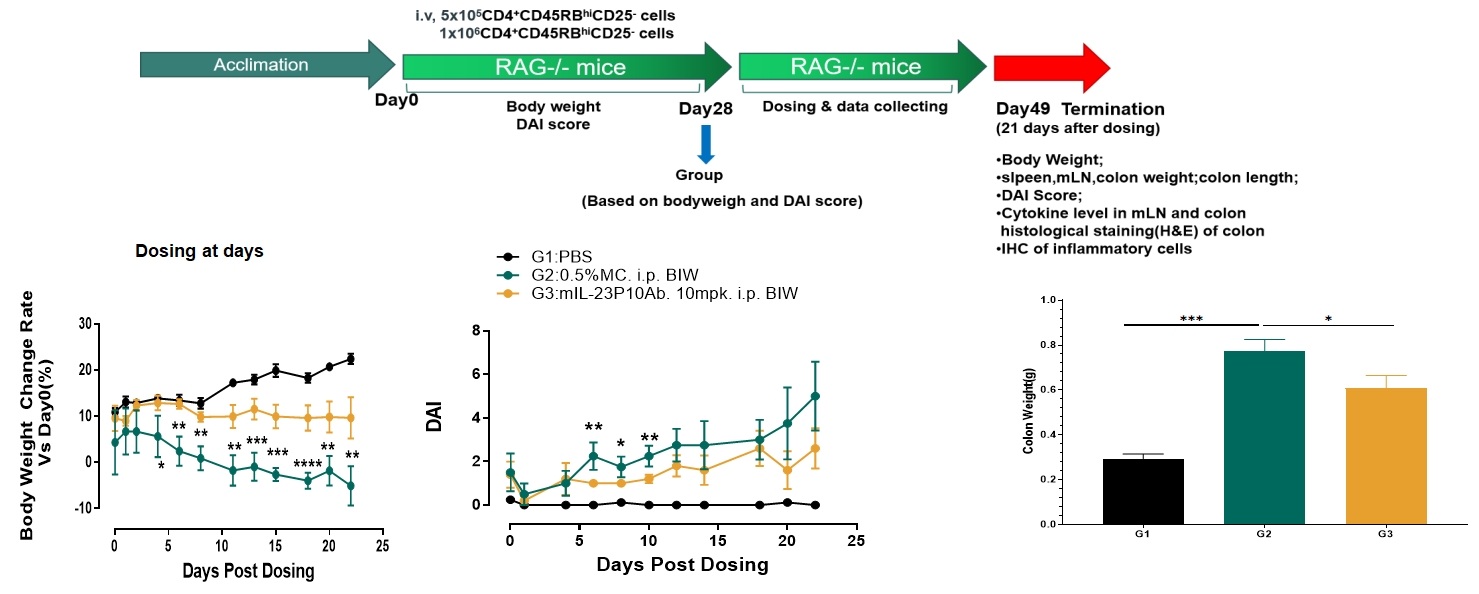The T - cell transfer - induced inflammatory bowel disease (IBD) mouse model is a valuable tool for studying the immunopathogenesis of IBD. In this model, naïve CD4+ T cells, often isolated from the spleen or lymph nodes of donor mice, are transferred into immunodeficient recipient mice, such as Rag1-/- or SCID mice.
Once transferred, these T cells become activated in the new host environment. They differentiate into effector T cells, mainly Th1 and Th17 subsets, which produce pro - inflammatory cytokines like IFN - γ and IL - 17. This leads to a chronic inflammatory response in the intestinal tract, closely resembling the symptoms and pathological features of human IBD, including weight loss, diarrhea, and intestinal mucosal damage. The model allows researchers to investigate the role of T-cell mediated immunity in IBD development and test potential immunomodulatory therapies.
Experimental mouse strains: RAG-/-, 6-7weeks old, female
Modeling cell: Sorted CD4+CD45RBhiCD25- cells from spleen of B6-hXXX mice
Modeling method:

Data were presented by mean ± SEM.*p<0.05, **p<0.01,***p<0.001
Experimental mouse strains: RAG-/-, 6-7weeks old, female
Modeling cell: Sorted CD4+CD45RBhiCD25- cells from spleen of B6 mice
Modeling method:

Data were presented by mean ± SEM.*p<0.05, **p<0.01,***p<0.001

